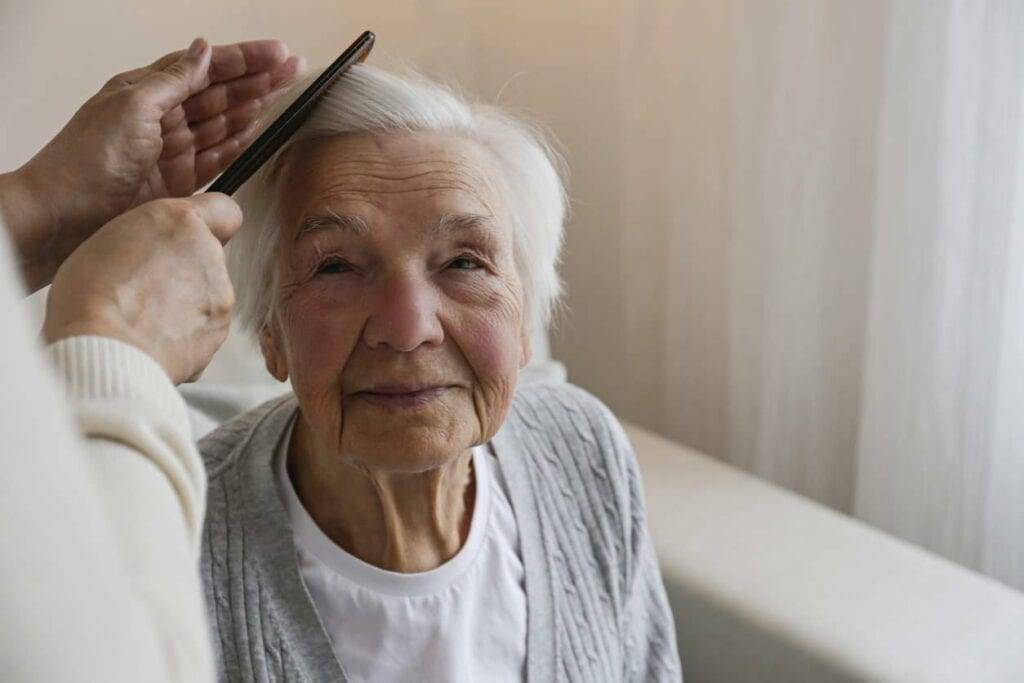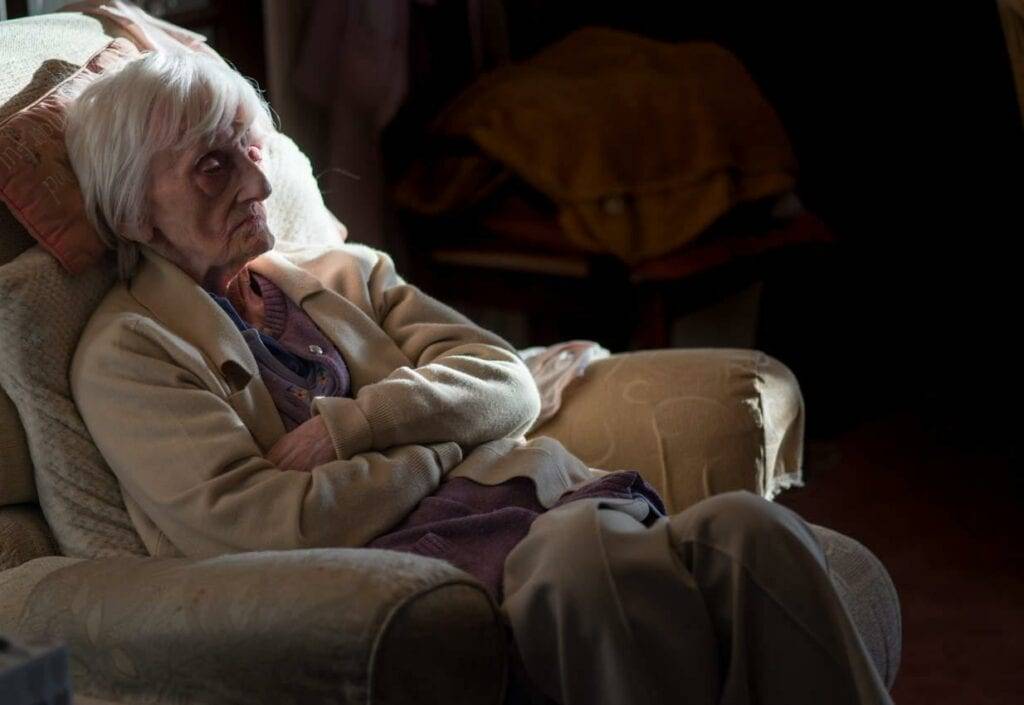Discover the true meaning of palliative care. Uncover who benefits from this compassionate support. Your guide to palliative definition awaits. Empower your journey now!
Palliative Definition: What Is Palliative Care, And Who Needs It?
How easy it is when we get sick to transform from an independent, self-reliant, and strong individual to someone needy and dependent on the mercy of others!
It can happen in a flash, after an accident, or over a longer period of time, after hearing a somber diagnosis. We may lose the ability to care for ourselves and will need loved ones to assist us in a lot of mundane tasks. But the worst of it is we will need to deal with the pain while preserving our dignity, grace, and sanity.
Palliative care comes to the rescue in times like the above. The term “palliative” refers to a type of care focused on relieving the symptoms and the stress caused by a serious illness.

Before looking more closely into palliative care’s definition and aspects, let’s discuss what is considered a ‘serious illness.’
What is a Serious Illness?
Naturally, when we don’t feel well, and especially if that feeling lasts, we tend to consider it a serious problem. The term ‘serious illness’ used in the healthcare industry, however, refers to a health condition or disease that significantly impacts one’s well-being, often posing a substantial threat to one’s health and quality of life.
Serious illnesses are characterized by their potential to cause severe impairment, disability, or life-threatening consequences. In older adults, serious illnesses are often more frequent due to the natural aging processes and the increased likelihood of developing chronic health conditions.
Conditions Classified as Senior Illnesses
As we journey through the golden years, certain health companions often join us, turning into more than just concerns – they become serious illnesses. Here’s a quick look at some of these companions:
Heart Disease
Our hearts, the loyal companions of a lifetime, sometimes face challenges as we age. Conditions like coronary artery disease, heart failure, and arrhythmias become more than medical terms – they become part of our story.
Cancer
Aging brings us face to face with a formidable foe – cancer – a reality that many older adults grapple with. Lung, breast, colorectal, prostate – these are not just medical categories; they’re battles fought on a personal front.
Neurological Disorders
The mind, a treasure trove of memories, encounters hurdles with conditions like Alzheimer’s and Parkinson’s. Cognitive impairments aren’t just medical jargon; they may become intricate parts of our stories that shape our daily experiences.
Chronic Respiratory Diseases
As the years add up, so do experiences with respiratory challenges. Chronic obstructive pulmonary disease (COPD) and pneumonia are two of the more common conditions when every breath matters.
Osteoarthritis
Our joints, faithful companions in every step, sometimes bear the weight of osteoarthritis. It’s not just pain; it’s a reminder of the wear and tear, a tangible testament to the journey of aging.
Osteoporosis
Bones, the silent architects of our frame, may lose their resilience. Osteoporosis is a physical representation of the fragility that comes with the passage of time, a vulnerability that whispers of potential fractures.
Diabetes
Type 2 diabetes, a complex plotline, weaves its way into the narratives of many seniors. It’s not just about sugar levels; it’s a tale that includes cardiovascular struggles, kidney chapters, and the delicate dance with neuropathy.
Kidney Failure
The intricate workings of our kidneys sometimes face challenges with chronic kidney disease.
Stroke
A stroke, a sudden twist in the plot, becomes more likely as the years unfold. A cerebral vascular accident might bring long-term challenges and unforeseen complications.
Vision and Hearing Loss
Our senses, once vibrant, may encounter fading visions and muted sounds. Age-related retinal changes, cataracts, and hearing impairments become chapters in the sensory journey of our lives.
Chronic Pain Conditions
Chronic pain conditions like fibromyalgia, chronic back pain, and sciatica rewrite the pages of our daily experiences. The pain turns into a constant companion that influences our quality of life.
Infectious Diseases
As our immune systems face their own battles, infections like pneumonia and influenza may become more than seasonal concerns. From minor illnesses, they begin to test our resilience.
In the midst of these health stories, seniors dealing with serious illnesses encounter specific challenges.
Navigating the intricacies of having more than one long-term health companion, the dance with multiple medications, and the ever-present possibility of physical changes over time are just a few of the issues.

That’s why the management of serious illnesses requires a comprehensive and multidisciplinary approach that can address the physical symptoms as well as the psychosocial and emotional aspects of care.
What Does Palliative Care Do?
The role of palliative care is to improve the quality of life for both the patient with serious illness and their family by addressing physical, emotional, and psychosocial needs.
As such, palliative care provides compassion and a comforting embrace that transcends the realm of medicine to nurture the hearts and souls of those facing serious illnesses.
Aspects of Palliative Care
Palliative care involves a symphony of measures carefully crafted to bring solace, relief, and dignity to individuals navigating the challenging journey of long-term illness.
More than a medical approach, palliative care is a holistic embrace that encompasses physical, emotional, and spiritual dimensions, creating a tapestry of support that celebrates the beauty of every precious moment.
At its core, palliative care is about relieving suffering. It tenderly cradles patients in the gentle hands of healthcare professionals who specialize not only in the treatment of symptoms but also in the art of understanding, listening, and empathizing. It’s a sanctuary where pain is acknowledged, fears are embraced, and the weight of uncertainty is shared.
Symptom Management
One of the pillars of palliative care is symptom management. Imagine a patient weary from the trials of illness, finding respite from the relentless ache that accompanies their condition.
Palliative care teams work tirelessly to alleviate pain, nausea, fatigue, and breathlessness, allowing individuals to regain a sense of control over their bodies. It’s a journey towards comfort, where the flicker of relief becomes a beacon of hope.
Emotional Support
Yet, palliative care extends beyond the physical realm, acknowledging the profound impact of illness on emotional well-being. It’s a sanctuary where tears are not signs of weakness but rather testaments to the depth of human experience.
Emotional support is woven into the fabric of palliative care, with healthcare providers becoming companions on the emotional roller coaster that accompanies serious illnesses.
Compassionate embrace
Picture a moment where a patient’s fears and anxieties are met with a compassionate presence. Palliative care professionals engage in open and honest conversations, creating a safe space for patients to express their worries, hopes, and dreams.

Through empathy and active listening, they become pillars of strength, helping patients navigate the complex landscape of emotions that often accompany serious health challenges.
Communication and Involvement
Communication is a cornerstone of palliative care. It involves not only relaying medical information but also fostering a dialogue about personal values, preferences, and the goals of care.
Palliative care teams engage patients and their families in shared decision-making, empowering them to actively participate in shaping the course of their care journey. It’s a collaboration where every voice is heard, and every choice is respected.
Coordinated care
In palliative care, coordination is key. A multidisciplinary team of physicians, nurses, social workers, chaplains, and other specialists, collaborates to address the myriad needs of patients.
This collective effort ensures that every facet of a patient’s well-being is considered, creating a seamless flow of care that is as comprehensive as it is compassionate.
Dignity and respect
The essence of palliative care lies in its respect for individuality. It acknowledges that every person is unique, a mixture of experiences, beliefs, and aspirations.

Palliative care professionals take the time to understand each patient’s cultural, spiritual, and personal dimensions, tailoring care plans to honor the individual’s preferences. It’s an affirmation that every life is a story worth telling, and everyone deserves care that aligns with their values.
A bow to spirituality
As the sun sets on the physical aspects of life, palliative care gently illuminates the spiritual dimension of the human journey. It provides a space for reflection, connection, and the exploration of meaning.
Spiritual care, offered with sensitivity and respect for diverse beliefs, becomes a source of comfort and strength, nurturing the soul as it embarks on the profound journey of transitioning from one existence to another.
Is Palliative care the same as Hospice care?
Palliative care and hospice care are both approaches that focus on improving the quality of life for individuals facing serious illnesses. While there are similarities, key differences in their goals, timing, and eligibility criteria also exist.
Comparison Table
| Palliative Care | Hospice Care | |
|---|---|---|
| Goal | The primary goal of palliative care is to provide relief from the symptoms and stress associated with a serious illness.
It aims to improve the overall quality of life for patients and their families. |
Hospice care is specifically designed for individuals near the end of life, focusing on providing comfort and support in the final stages of a terminal illness.
The primary goal is to enhance the quality of life in the final months, weeks, or days. |
| Timing |
|
Hospice care is typically initiated when a person has a prognosis of six months or less to live, as determined by a physician. Patients receiving hospice care have decided to forgo curative treatments aimed at prolonging life. |
| Treatment focus | Palliative care addresses a broad range of physical, emotional, and spiritual symptoms.
It does not necessarily focus on end-of-life care but rather on enhancing comfort and well-being throughout the course of the illness. |
Hospice care prioritizes comfort care, symptom management, and emotional support.
It does not aim to cure the underlying illness but rather to provide compassionate end-of-life care. |
| Eligibility | Patients receiving palliative care may continue to receive treatments aimed at curing or controlling their underlying illness.
There are no strict eligibility criteria based on life expectancy. |
To qualify for hospice care, patients must have a terminal diagnosis and a limited life expectancy, as determined by a healthcare professional.
Choosing hospice means discontinuing curative treatments. |
| Setting | Palliative care can be provided in various settings, including hospitals, outpatient clinics, or even at home.
It is integrated into the overall care plan for individuals with serious illnesses. |
Hospice care is often provided in the patient’s home, but it can also be offered in specialized hospice facilities, nursing homes, or inpatient hospice units. |
| Team Approach | Palliative care often involves a multidisciplinary team of healthcare professionals, including physicians, nurses, social workers, chaplains, and other specialists. | Similarly, hospice care involves a team of professionals from different fields.
This team focuses on addressing the patient’s unique needs and providing support to their family. |
In summary, while both palliative care and hospice care prioritize comfort and support for individuals facing serious illnesses, palliative care is a broader approach that can be initiated at any stage of a serious illness, while hospice care specifically addresses the needs of individuals nearing the end of life.
The decision to enter hospice care often involves a shift in treatment goals from curative to comfort-focused care.
Palliative Care For Chronic Diseases
Seniors battling chronic conditions such as cancer and terminal illnesses may experience some of these difficulties:
- Reduced resilience: This makes it tougher to endure the side effects that come with treatments.
- Complex health issues: This can make treatment plans more intricate and overall health management more challenging.
- Limited treatment options: Pre-existing health conditions, compromised organ function, and concerns about how treatments might impact overall well-being may limit the available choices.
- Polypharmacy: Seniors managing various health conditions may be on multiple medications. Navigating potential interactions with cancer treatments for instance, adding complexity to overall medication management.
- Cognitive issues: Age-related cognitive changes can affect the ability to grapple with complex medical information. Seniors might find decision-making about treatment and day-to-day activities more challenging.
- Mobility and functional decline: Some chronic conditions can contribute to physical decline, affecting seniors’ mobility and independence in daily activities
- Social isolation: Seniors with limited mobility or those living alone, might experience heightened social isolation. The emotional toll of this isolation can significantly impact their overall well-being and quality of life.

- Financial strain: Fixed incomes and retirement constraints often amplify the financial strain.
- Impact on caregivers: Caregivers, often family members or friends, face increased strain as well. Balancing their own age-related health concerns or caregiving responsibilities for other family members becomes an added challenge.
- Communication barriers: Effective communication with healthcare providers can be challenging for seniors, such as expressing concerns, understanding treatment plans, and actively participating in decision-making.
- End-of-life planning: Navigating decisions about end-of-life care, advance directives, and hospice discussions becomes a poignant reality for seniors with terminal conditions. These conversations, though emotionally difficult, are crucial for honoring their wishes.
At Amy’s Eden, we understand these challenges, and focus on palliative care
that goes beyond just treating the disease; it’s about personalized support that touches every aspect of a person’s experience.
Our palliative care approach include:
Symptom Management
It’s not just about medications; it’s about understanding you. Whether it’s finding the right therapy, adjusting your diet, or incorporating non-drug interventions, the focus is on what works best for you. From pain to fatigue, the palliative care specialists at Amy’s Eden tailor the plan to fit your needs.
Holistic Approach
Your well-being is more than just physical. Palliative care from Amy’s Eden looks at you as a whole – your body, emotions, and spirit. It’s about addressing not just the symptoms but also the emotional and spiritual aspects of dealing with the chronic condition. Your beliefs matter, and our support is crafted to bring you comfort and guidance.

Communication and Decision-Making
In this journey, you’re at the center. We foster open communication, ensuring you, your family, and your healthcare team are on the same page. Discussions about treatment options, goals, and even planning for the future are all part of this collaborative process. Your values guide the decisions.
Emotional Support
Cancer and terminal diseases can take a toll on your mental health. Palliative care steps in with emotional support, counseling, and resources to help you and your family navigate the emotional ups and downs of the condition. You’re not alone in this.
Family Involvement
Your family is part of this journey, too. Palliative care recognizes their importance. We involve them, providing education, support, and resources to help them support you better.
Coordination of Care
This isn’t a solo mission. Palliative care is a team effort. A diverse team – physicians, nurses, social workers, chaplains – all working together to ensure your care is seamless and comprehensive.
Advanced Care Planning
Your voice matters. We encourage discussions about your preferences for care, especially towards the end of life. Your choices are documented and respected, giving you control over your journey. This is often facilitated through tools like the POLST form.

Transition to Hospice Care
If curative treatments reach their limit, palliative care helps in the transition to hospice care. It’s about ensuring a smooth shift to end-of-life care when the time comes. Your comfort remains the priority.
Palliative care isn’t just for the final stages. It’s a companion at every step, integrated early on for maximum impact. Addressing all your needs complements the treatments you receive, enhancing your quality of life during treatment for a chronic illness. You’re not just a patient but a person, and your journey matters.
Summary
Palliative care is especially relevant in addressing the needs of seniors with serious illnesses. It focuses on improving the quality of life by managing symptoms, addressing emotional and spiritual concerns, and facilitating communication about treatment goals and end-of-life preferences.

Additionally, healthcare providers work collaboratively with seniors and their families to develop personalized care plans that align with individual preferences and values.
Advanced care planning, including discussions about end-of-life care, is an essential component of managing serious illnesses in seniors, promoting dignity, and ensuring that care aligns with their wishes.
It’s important to note that palliative care is not limited to end-of-life care. While it is a crucial component of hospice care for those approaching the end of life, palliative care can be initiated at any stage of a serious illness alongside curative or life-prolonging treatments.
The goal is to provide holistic support to enhance the overall quality of life for individuals facing challenging health conditions.
We at Amy’s Eden regard the realm of palliative care in which each interaction is a testament to the profound beauty of humanity.
It’s a celebration of resilience, love, and the enduring spirit that transcends the boundaries of illness.
For us, palliative care means not just treating the body but uplifting the spirit, painting the canvas of life with hues of warmth, compassion, and the unwavering belief that every moment, no matter how fleeting, is a precious gift.
Want to talk about palliative care for you or your elderly loved one? Contact us today.




